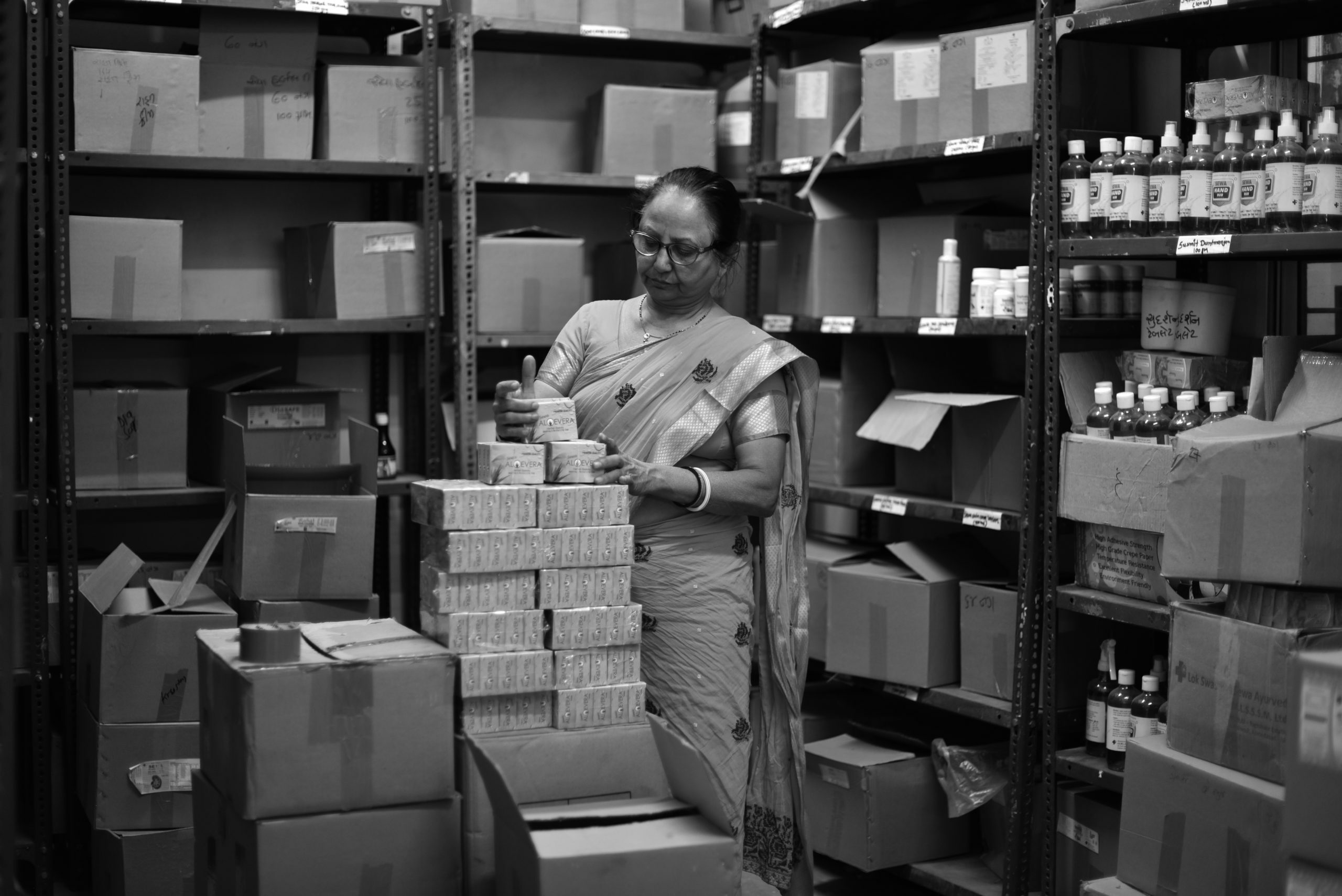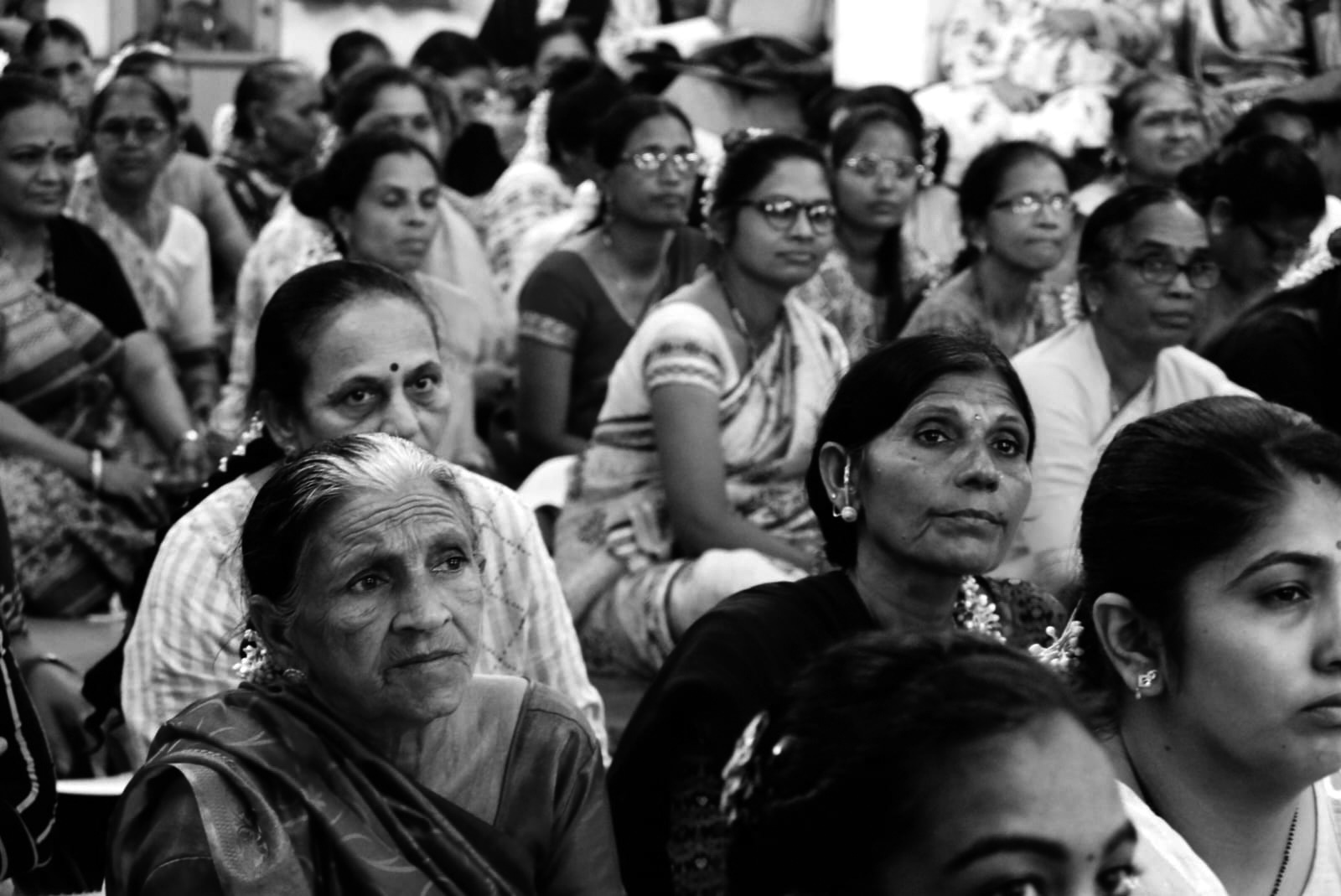La entidad en datos
Main activity: Provision of affordable healthcare services and products to women in the informal sector as part of a cooperative business model.
Year founded: 1984 (and registered in 1990).
Legal structure: Cooperative society
Number of people currently employed: 58
Region/Country in which it operates: Gujarat (India)
Category: Empowering Informal Women Workers Through Health Cooperatives

CLAVES DEL ÉXITO E IMPACTO EN LA SOCIEDAD
Lok Swasthya Mandli (LSM) is a women-led health cooperative established in 1990 by the Self-Employed Women’s Association (SEWA) to provide affordable healthcare services, promote social security, and create economic opportunities for informal women workers. The cooperative emerged from SEWA’s early efforts in linking women to maternal healthcare and government schemes, gradually evolving into a community-driven healthcare model. It now has 1,536 women shareholders and offers an integrated approach to healthcare and economic empowerment.
Growth Strategies
Building Member Capacity: Cooperative members play a key role in its value chain, fulfilling roles in production, sales, marketing and awareness. Member training programs thus need to cover product development, communication, sales, digital literacy, leadership, and management.
Collective Leadership: A bottom-up approach identifies grassroots leaders ensuring inclusive decision-making and representation.
Health & Social Security Linkages: LSM operates 30 SEWA Shakti Kendra across Gujarat. They function as one-stop hubs for health information, affordable medicines, medical check-ups, and referrals. LSM’s approach integrates healthcare with broader social needs, including childcare, insurance, and livelihood security.
Business Line Expansion: To remain competitive, LSM quickly adapted during COVID-19 by producing sanitizers, distributing relief kits, and educating members.
Public-Private Partnerships: Collaborations with government health programs and insurance schemes helped expand healthcare access for marginalized women.
SEWA Cooperative Federation’s Role: The Federation has supported LSM’s Ayurvedic manufacturing through strategy development, market research, credit access, sales training and digital outreach.
Impact
Achieved 14% YoY growth, generating 7.98 crore revenue (2023- 24). Employed 144 women and served 2.26 lakh clients, reaching 2.72 lakh people through training, camps, and outreach.

DESAFÍOS ENFRENTADOS
External Challenges and Evolving Market Demand: Compared to private enterprises in the health sector, the cooperative struggles to respond swiftly to shifting consumer preferences, lifestyles, and market trends due to limited access to investment, technology, expertise, and resources. For example, the growing demand for Ayurvedic products and treatments necessitates adaptation to remain competitive and profitable.
Shortage of Full-time Professionals: The cooperative lacks a dedicated team of full-time professionals and subject matter experts, relying instead on external advisors for strategic planning and expansion efforts. Attracting and retaining skilled professionals is challenging due to financial constraints and their unfamiliarity with cooperative principles. Additionally, professionals may require time to acclimate to the cooperative’s values and working environment.
Resource Constraints: Securing financial support for equipment, training, marketing, and expansion remains a significant challenge. Limitations in infrastructure, such as workspace and storage, further restrict operations. These constraints hinder investments in research and development (R&D), innovation, and market adaptation.
Ongoing Support for Members: Many grassroots members of the cooperative lack the necessary skills for their roles, requiring continuous training and on-the-job support to improve their capabilities.
ESCALABILIDAD Y REPLICABILIDAD
The Lok Swasthya Mandli (LSM) business model is both scalable and replicable. It has successfully expanded across Gujarat, reaching over 150,000 women and operating diverse healthcare and business units, including retail medicine stores, an Ayurvedic manufacturing unit, and community health programs.
1. Scalability:
The cooperative has demonstrated a 14% year-on-year growth, generating substantial revenue and employment.
It has diversified revenue streams, including retail medicine sales, Ayurvedic product manufacturing, and community health services, ensuring financial sustainability.
The use of digitization and online marketing strategies provides further scope for expanding market reach.
2. Replicability:
The cooperative’s bottom-up approach of training grassroots women as health workers, entrepreneurs, and leaders can be replicated in other states or countries with informal women workers.
Its low-cost retail medicine model has already been expanded with support from the government and could be implemented elsewhere with similar public-private collaboration.
The Ayurvedic production unit offers an adaptable model that can be scaled in regions with demand for affordable, natural health solutions.
This model can be replicated in regions where:
There is a high population of informal women workers who lack access to affordable healthcare.
Government collaboration can facilitate access to infrastructure and funding.
A social enterprise model is viable, balancing community service with revenue generation.
CONCLUSIONES Y MORALEJA
Coops enhance community healthcare: LSM bridges healthcare gaps, improves awareness, affordability, and socioeconomic well- being. Since 1972, it linked members to government programs, trained 500 midwives, and expanded into occupational health, NCDs, nutrition, and mental health using IEC materials.
Diversification ensures sustainability: Ayurvedic and retail ventures helped LSM withstand shocks like COVID-19, reaching INR 3.65 crore turnover in 2023-24.
Capacity building & adaptability sustain enterprises: Need- based grassroots training and pivoting business during crises demonstrates the importance of flexibility in social enterprises. Social and economic goals can align: LSM proves social impact- driven businesses can be profitable.